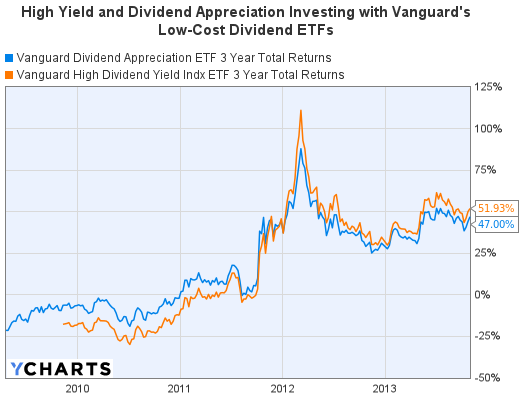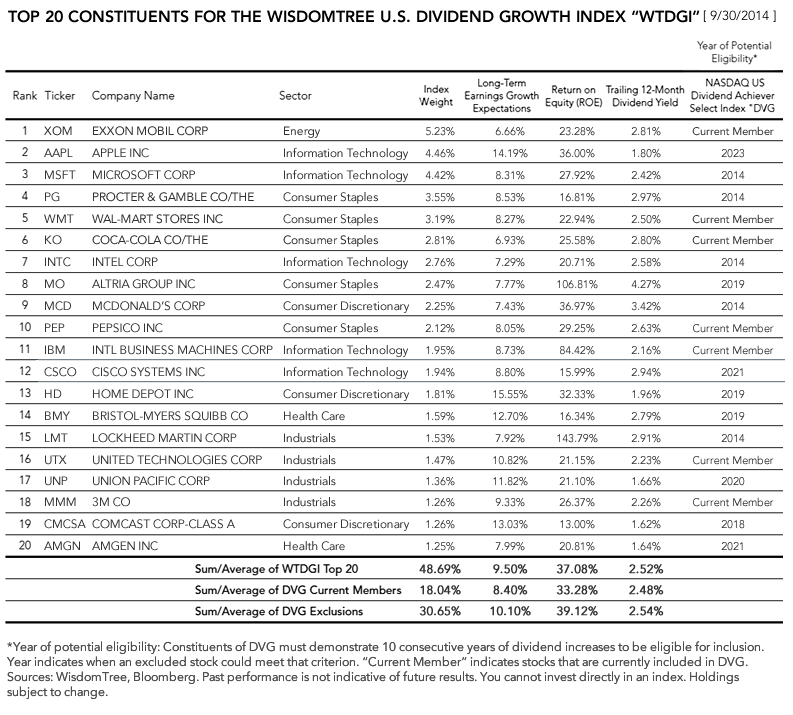Pursuing Dividend Yield and Growth with Emerging Markets ETFs
Post on: 16 Март, 2015 No Comment

Pursuing Dividend Yield and Growth with Emerging Markets ETFs
Investors pursuing yield can find plenty of reasons to invest in international equities. For one, foreign stocks generally pay higher dividend yields than U.S. stocks. This applies to emerging market stocks as well, as measured by the MSCI Emerging Market Index, even though most investors would be inclined to assume that growth-focused companies in emerging markets tend to reinvest a higher portion of their earnings into business opportunities than to return cash to investors. Indeed, dividend growth in the emerging markets, on average, has been more robust than in developed markets. According to ING, in the last seven years, dividend growth rates have been significantly higher in emerging markets than in the United States. The chart below clearly illustrates that advantage on the examples of earnings and dividends per share growth of the S&P 500 and the MSCI Emerging Markets Index since the early 2003.
While investing in individual stocks is risky enough, investing in individual stocks in emerging markets can carry an even higher degree of risk. Investors pursuing emerging-market equity investments can buttress any potential drawdowns through investments in dividend-paying equities. Moreover, they can reduce the risk of exposure to single companies through broadly diversified emerging-market ETFs. Hence, dividend-paying emerging-market ETFs can be appealing investment instruments to attempt to capitalize on comparably higher income-earning potential of emerging market stocks, especially if expecting a more robust long-term earnings and dividend growth in emerging markets compared to the developed ones. Here is a list of five such ETFs that can serve as a basis for further research in the category of diversified dividend-paying emerging-market ETFs.
1. WisdomTree Emerging Markets Equity Income (DEM)
This ETF tracks the price and yield performance of the WisdomTree Emerging Markets Equity Income Index, a fundamentally-weighted index that measures the performance of the dividend-yielding securities in the top 30% by dividend yield of the WisdomTree Emerging Markets Dividend Index. The stocks in the Index are weighted based on annual cash dividends paid.
This ETF has a 12-month distribution yield of 3.96% and a 30-day SEC yield of 3.55%. It is most concentrated in financials, which have a 25.4% weight in the ETF, followed by energy (21.5% weight), basic materials (17.0% weight), and telecommunication services (16.77% weight). Equities from Russia, China, and Brazil account for nearly 50% of the total index weight. The ETF assesses an annual management fee of 0.63% and has returned an average 4.53% p.a. based on NAV returns.
2. WisdomTree Emerging Market Dividend Growth (DGRE)
The fund attempts to approximate the price and yield performance of the The WisdomTree Emerging Markets Dividend Growth Index, a fundamentally-weighted index measuring the performance of growth-oriented dividend-paying stocks in the WisdomTree Emerging Markets Dividend Index. The Index consists of the top 50% of companies with the best combined rank of growth (measured by long-term EPS growth expectations) and quality factors (measured by three-year historical averages for ROE and ROA). The Index stocks are weighted based on annual cash dividends paid.
With an inception date on August 1, 2013, DGRE has a 30-day SEC yield of 2.00%. Consumer staples and telecommunication services stocks have the highest sectoral weights in the ETF, some 18.56% and 18.34%, respectively. Materials and financials have 13.97% and 12.77% weighting in the ETF, respectively. Brazil, South Africa, Russia, Indonesia, and Thailand are the top five countries by weight, with individual weightings ranging from the top-ranked Brazils 15.20% to the fifth-ranked Thailands 11.11%. This ETF assesses an annual management fee of 0.63% and has performed relatively flat over the past two months in existence.
3. Vanguard FTSE Emerging Markets ETF (VWO)
The ETF that is defined by its issuer as only appropriate for long-term goals seeks to approximate the return of the FTSE Emerging Index, a market-capitalization weighted index tracking the performance of some 850 large and mid-cap companies in 22 emerging markets. However, the current ETF holdings of 926 companies exceed the number of index holdings.
The ETFs inception date was March 4, 2005. VWO has a 12-month distribution yield of 3.36% and is most heavily exposed to financial stocks, which account for a quarter of the funds total weight. Energy, technology, and communications services follow financials, carrying weights that slightly exceed 10.0%. China, Brazil and Taiwan together account for almost 50% of the funds total weight, with China alone accounts for more than a fifth of the ETFs weight. The ETF is heavily exposed to emerging Asia, the region that carries 44% weight in the ETF. VWO has an annual management fee of 0.18%, among the lowest in the industry. Based on the NAV returns, this ETF has returned about 8.2%, annualized, since its inception.

4. SPDR Emerging Market Dividends (EDIV)
EDIV seeks to approximate the price and yield performance of the S&P Emerging Markets Dividend Opportunities Index which offers exposure to some 100 high-yielding emerging market stocks. The ETF currently holds 127 holdings. The ETFs inception date was February 23, 2011. It has a 12-month distribution yield of 5.16% and a 30-day SEC yield of 6.16%. Five top sectors have the following weights in the ETF: financials (24.83%), utilities (19.49%), materials (16.50%), telecommunication services (11.74%), and IT (8.69%). Brazil, Taiwan, and China account for nearly half the funds weight, while Poland follows with an additional 10.5% weight. The fund assesses a management fee of 0.59%. It has realized an annualized loss of 2.5% since inception, based in the NAV return.
5. iShares Emerging Market Dividend ETF (DVYE)
This ETF seeks to approximate the price and yield performance of The Dow Jones Emerging Markets Select Dividend Index, comprising of 100 leading dividend-paying emerging-market stocks, selected by dividend yield subject to screening and buffering criteria. DVYE was initiated on February 23, 2011. It currently has a 12-month distribution yield of 3.93% and a 30-day SEC yield of 4.92%. Financials and basic materials each have an approximately 17.00% weight in the fund, followed by utilities (14.4% weight) and telecommunications (12.71% weight). Taiwan, Brazil, and South Africa have a combined share of about 51% of the fund, with Taiwan accounting for more than 27% of the total fund weight. DVYE assesses a management fee of 0.68%, but its total expense ratio is 0.49%. The fund has realized a loss of 1.1% since inception, based on its NAV return.
Notwithstanding the appeal of investing in higher-yielding emerging market ETFs, risks of investing in emerging markets should be weighed carefully. Emerging market dividends are generally more susceptible to changes in earnings than those in developed markets, with increases and decreases promptly following earnings performance. Emerging market stocks are also more sensitive to capital flight, and can fall victim to large swings reflecting changing investor sentiments. Moreover, there is an issue of currency risk, which may affect total returns significantly. Investors pursuing emerging market stocks and ETFs should particularly be aware of limited liquidity of some of the noted investments. As examples above show, these investments may underperform their benchmarks and other indices, including those from developed markets. They may be more suitable for long-term investment horizons.
Investors particularly interested in gaining exposure to emerging markets should consider dividend-paying emerging-market ETFs. These investment instruments are generally attractive due to carrying higher dividend yields and greater dividend growth potential that those offered on developed market stocks on average; however, those advantages are matched with significant risks that should be weighed carefully when making investment decisions.














